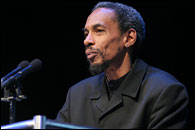
NEW LITERATURE by ROI KWABENA
CELEBRATING A UNIQUE CULTURAL HERITAGE

CELEBRATING A UNIQUE CULTURAL HERITAGE
“in the moment"
"ORISHA SONGS FOR CELINA"
|
|
|
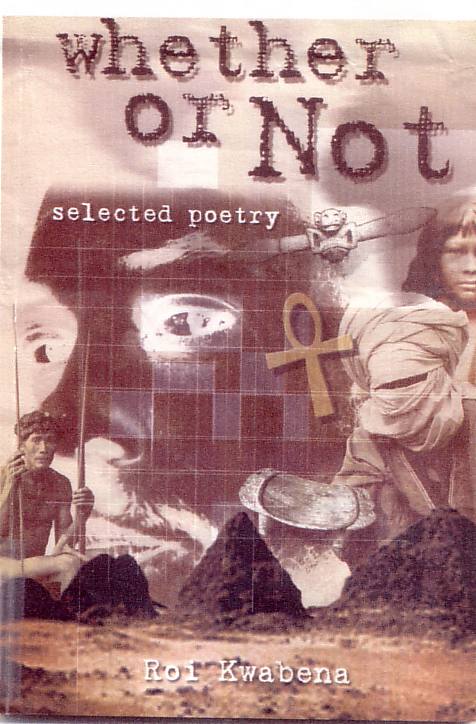
ROI KWABENA |
“Introduction
Dr. Lauri Ramey,
Department of English, California State University, Los Angeles”
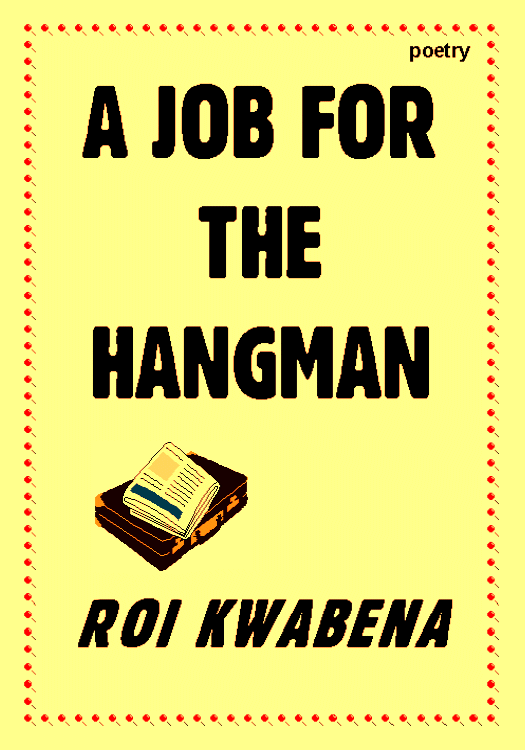 INTRODUCTION
INTRODUCTION
"A poem alone can expose a lie ”
Anyone who meets Roi Kwabena or sees him in performance will recognize
in the man the qualities that characterise his poetry- a restless energy,
a wry wit and humour, a fervent commitment to egalitarian ideals and a
real concern for the people of Trinidad.
Just about all of the poems in this new collection are poetic commentaries
on the flux and frustrations of life in modern Trinidad, written from the
unique perspective of one who has seen how the political system works from
the inside- during his tenure as a Senator in the nation’s Parliament-
but who has stepped away from that role to reclaim the license of the folk-poet
to s(t)ing those in power who do not live up to their own rhetoric.
A strong sense of the region’s history underpins the poet’s responses to
the vagaries of contemporary “politricks”. He is aware of the long shadow
of colonialism that still affects Trinidadian society-from the legal retention
of the condemned man’s right to appeal to the Privy Council in London,
right down to the kinds of insecurity that characterise individuals who
have internalised an idea of themselves as being ‘colonials’, in some ways
only second class citizens of the world.
Kwabena sees evidence of such neo-colonial mentality in some of his compatriots’
attitudes and actions and his poetry sets out to combat that pervasive
distortion of values. By offering his audience a sense of their claims
on wholly other cultural heritances-particularly through his informed awareness
of the importance of Africa in the evolution of Caribbean culture-Kwabena’s
poetry argues an alternative agenda.
“What is disturbing, is the level of cultural illiteracy”
To
invoke a not inappropriate echo, the poems in "A
JOB FOR THE HANGMAN" represent
a kind of ‘grounding’ between the poet and his audience: they serve, in
performance, as occasions for debate and discussion rather than the invitation
to applause 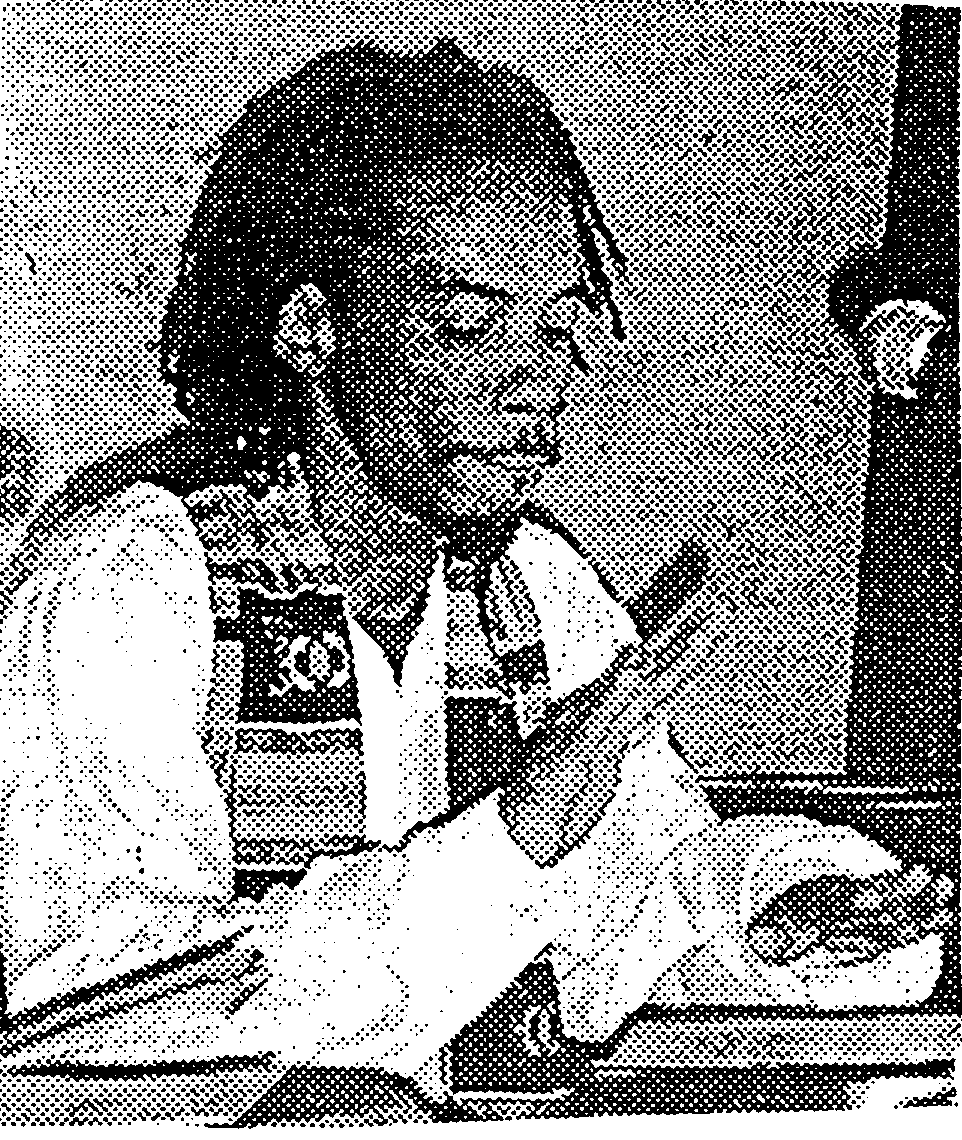 that
the more conventionally literary poem seems to invite when read aloud.
Kwabena, like other poets of this tradition across the Caribbean, seems
to value the poem primarily as an agent of dialogue- whether directly,
as in performance, or in terms of stirring his readers to debate among
themselves.
that
the more conventionally literary poem seems to invite when read aloud.
Kwabena, like other poets of this tradition across the Caribbean, seems
to value the poem primarily as an agent of dialogue- whether directly,
as in performance, or in terms of stirring his readers to debate among
themselves.
The poet’s
vocation for Kwabena is understood within the broader context of cultural
activism- not for him the luxury of emotions recollected and shaped in
tranquillity- rather these poems are urgent messages from the front.
As such it is not surprising that the poetic, language he employs is direct
and largely lacking in the ornaments of a more leisured idea of versification-
there is little room for metaphor in this poetry of engagement.
But
like the work of the calypsonians- whose shadows inevitably bear on any
popular poetry from Trinidad- there is much clever wordplay here
and Kwabena’s poems are characterised by a kind of rhythmic surge which
invites enunciation and performance- Roi Kwabena writes in the anticipation
that the words will come off the page and into the air, so the poems are
written to be heard as much as to be read and that expectation very much
determines their shape on the page.
but not for a noble prize,
only to write the wrongs
to feed
the hungry children an’ poor
people....
Dr. Stewart Brown
University of Birmingham,
United Kingdom
October 1996
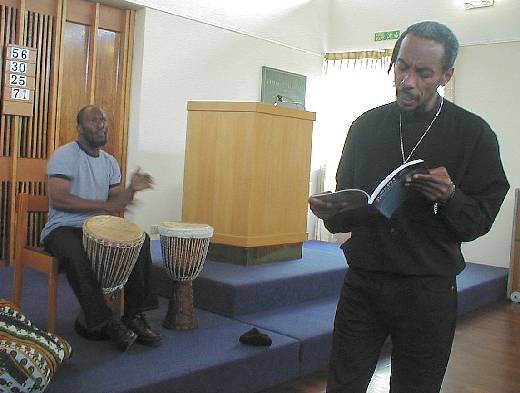
...now take your responsibility
seriously....
hang with expediency
hang this legislation for its impropriety
hang the legacy of slavery an’
indentureship
hang high the ruling parasitic
oligarchy
hang until dead the injustice of
being
incarcerated for two decades awaiting
execution...
hang the plan to abolish the privy
council
hang (sic) the plan to empower
the sterile
legal vultures of these plantation
economies....
hang the archaic state of prisons,
be it trinidad, jamaica
or grenada
hang quickly the temptation to
ignore
amnesty international...
hang the truth up high that the
issue
is not only the death penalty but
human rights...
accept the reality that the causes
of crime
must be addressed
for the homeless, poverty-stricken,
naked an’ hungry
cannot be overlooked...
hang the inability to protect the
fishing industry...
execute immediately the notion
of nationals
(whether trini or guyanese)
have the right to pollute the orinoco
delta
with their drug an’ gun runnin’
activity,,,
hang until dead this system of neo-colonialism
.....now take your responsibility
seriously....
then we can begin to discuss
NATIONAL UNITY....
LETTER FROM SEA LOTS
“........only five pounds yuh send?
bread, sugar an’ milk gone up.........
buses doh run.... water still
go
now severe-threat in charge
ah de water in maraval
so we looking out fuh poison...
money hard to come by....we down
here suffering
sure..we have gas, oil, menthanol....
....steel, an’ sugar exporting..
buh mangrove still vamping...
factories not hiring.....even race
horse protesting....
crime rampant as jurors
hunted
laws improvising an’ english q-cees
hustling..
buh teachers’ money still owing...
yuh ask for news? any news is sad
news.....
doubles-man an’ market vendors
still on de run
kidnapping an’ family murders add
to dis shame
while meh OLE gran still
worried sick ‘bout she pension...
cable an’ wireful, wid sure-hell
come back...
even powertake an’ brit grasp
follow fashion
buh maxi still accept short change
yet parts expensive..so only insurance
profittin’
as sprangers still roam in de night
de only difference is de den opposition
must now salute for de independence
parade...
senator..ah sure yuh would
ah like tha....”
i wish i was an obeah man
better than papa niza or even shadow
to light a big mauve candle and
throw light on
evils throughout the ‘global village’
i wish i was a obeah man to
write the wrongs
but not for a noble prize, only
to feed
the hungry children an’ poor
people...
i wish i was a obeah man to enable
sight through the lies
an’ chase away the flies of broken
promises
i wish i was a obeah man
to decide an end to austerity measures
establish a ‘real’ world order
destroying racism..and political
debauchery
i wish i was a obeah man
an’ run foreign conglomerates
who exact profits
in a new wave of deception....
i wish i was a obeah man
to obliterate nepotism
while at the same time licking
up drug barons
who pose as legitimate merchants
i wish i was an obeah man
to manifest and distribute spirit
blows
as deals are secretly made
to devour the wealth of our people...
i wish i was an obeah man
to manifest de
over due national theatre
i wish i was an obeah man
and stabilize the T&T dollar
...depose the plantocracy
to empower the landless...
i wish i was an obeah man
an’ stop police brutality
i wish i was an obeah man
an wok some true- true obeah
but it is difficult to be
an obeah practitioner
when even the patrons are fakes
while the deserving are chased
away by bureaucracy....
as some very important people
seek me out
in the dead of night.....
port
of spain - birmingham - omdurman
gone
are the days
of puppets, robots
and bionic-men
these tales
are of nations ruled by
ones who appear as humans
with considerable intelligence,
yet show no emotions...
being manipulated from afar by
some who feign compassion
with plans for further destruction...
my son enjoys these comics.
Forgive Us Our Debts
........wish we had a father
not only in heaven
but also on earth.
we would forgive
our debtors
and all those who
trespassed against us
the genocide...
the chattel slavery.....
the indentureship.....
the religious conversion....
the plunder of our antiquities....
the economic deprivation....
the scientific exclusion....
could we expect
our debts to be forgiven
so that we may feed our people
we wont be led into
military aggression
we will uphold the ideals
of tolerance and equality
we will fair trade
all commodities
we will promote
sustainable development
and protect
the earth's environment
oh! can we expect
our debts to be forgiven
as we adhere to principles
that will be beneficial to all
of humanity
we the rich-but considered poor
nations
of the southern hemisphere.....
Lord Harris's statue
with fountain have escaped
many vicious assaults of vandalism
over recent years. This public
square
in Port of Spain with stately trees
still shelter white-collar
labourers
on lunch break from
the sweltering sun at noon
alongside half naked vagrants
wary of clogged city streets. At
night, here
becomes a sacred haven-
discreet
for persecuted transvestites. While
obliquely opposite towers
the impregnable stone walls
of the Royal Goal, constructed
early in the last century
by skilled artisans whose
descendants would serve time within
at her majesty's pleasure....
This monumental institution has
restrained
common offenders and civil disorder
:
water rioters, trade unionists,
black power radicals,military mutineers
an' even Islamic fundamentalists...
Royal Goal remains a treasure
to behold. An imposing vestige
of a now compromised system
that ostentatious political cronies
are attempting to dismantle.
Behind these walls
faceless men, in white short trousers
with matching vests
sit precariously on Death Row
as their defense lawyers
seek to defy local verdicts
of state execution
Now in postulated affectation
of self righteous apathy
democratically elected
British trained legal advocates-once
defense lawyers to the highest
bidders
now as regional Attorney Generals
assert it is time to abolish
a convicted man's right of appeal
to the Privy Council....
none of these licit opportunists
cloaked in the rainment
of tempered tradition
considered challenging
this patriarchal eighteenth century
method of castigation....
.....despite
the mature judgement of
the same Privy Council condemning
the barbaric tenure of incarceration
with cerebral trauma
of impending strangulation....

RAKA Books is proud to announce the release of the long awaited new collection of selected poetry by Trinidadian born poet and cultural activist Dr. Roi Kwabena.
A formal launch+Reading took place at Waterstones High Street Branch in Birmingham,UK on Tuesday 18th September 2001, which was well attended.
This unique collection consists of six sections that address issues of historical and cultural significance in relation to the Caribbean experience in the region and the wider Diaspora. Topics include responses by of the poet to the little known heritage of Caribbean Indigenous peoples; Caribbean Politics; Capital Punishment; Carnival;World Peace; Third World Debt Crisis; Global Warming; Disappearing Children; Murder/Suicides & the under-estimated value of cultural diversity in his place of birth.
Whether Or Not includes
a concise glossary as well as the lyrics to the Spoken-Word Internet MP3
hits: Cascadura ,West India and Obeahman,. The latter poem/track has been
on the charts for the past year (at number #5) at famed US based Internet
music provider Rioport.com
Copies of the Spoken word CD : Y42K by R.K features spoken word, and music and drumology on the BluePlanet label.are available on order by email.
The poem: Forgive us our Debts was also included on the CenterPoint compilation CD album in support of the Jubilee 2000 campaign against the Debt crisis of developing countries.
Roi Kwabena is available internationally for Lectures, Readings, performances, panel discussions, signings, workshops etc. He is keen to promote cultural and functional literacy at festivals, cultural programmes, libraries, schools, universities and public venues.
ABOUT THE POET
|
|
|
|
THE POET |

WEB PAGE BY
ANKHKARA
© COPYRIGHT 2001-2006